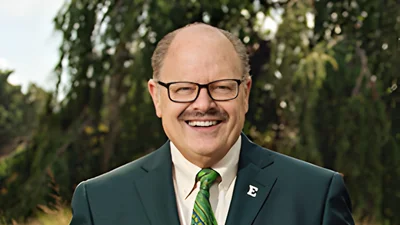Santa J. Ono, Ph.D. President at University of Michigan - Ann Arbor | Official website
Santa J. Ono, Ph.D. President at University of Michigan - Ann Arbor | Official website
University of Michigan experts are available to discuss a range of back-to-school topics, including pandemic learning loss, school bus pollution, education technology, teacher shortages, nutrition insecurity, vaccine hesitancy, and contagious illnesses.
Elizabeth Birr Moje, dean of the Marsal Family School of Education and the George Herbert Mead Collegiate Professor of Education, highlighted the critical issue of teacher shortages. "As children head back to school this fall, many districts struggle with shortages of well-prepared, certified teachers," she said. Moje emphasized the need for high-quality professional training and development for teachers along with better salaries and resources.
Jean Mrachko, associate director of Michigan Alternate Route to Certification (M-ARC), discussed how their program addresses teaching shortages by providing an accelerated six-month pre-teaching preparation program for individuals holding bachelor’s or master’s degrees in any field. "We’re opening access to teacher certification to people for whom a traditional pathway isn’t accessible," Mrachko said.
Michelle Bellino, an associate professor at the Marsal Family School of Education, focuses on education and youth civic development in contexts affected by armed conflict and forced displacement. She stressed the importance of higher education institutions supporting refugees and displaced communities. "An estimated 40 million school-aged children and youth around the world are forcibly displaced," Bellino noted.
Samantha Keppler from the Ross School of Business addressed generative AI's impact on education. "Everyone is talking about how generative AI will transform education. But we know very little about what is actually happening in schools right now," she said.
Deborah Loewenberg Ball emphasized public schools' role in fostering respect across differences and supporting students' academic development. "Teachers need time to continue developing their practice and to be compensated equitably for their work," she stated.
Liz Kolb discussed cell phone bans in K-12 schools. "Some state governments and many schools are implementing or considering implementing cell phone bans," Kolb said while noting that such policies should consider each school's unique demographic and culture.
Rebecca Quintana focuses on technology-enhanced teaching within higher education contexts but did not provide a specific statement for this advisory.
Pamela Davis-Kean from the College of Literature, Science, and the Arts recommended mentoring programs and individualized education plans to address lower achievement scores due to pandemic disruptions. "It will be important for schools across the country to continue to consider ways that students can get more time to develop important skills in mathematics and reading," she advised.
Sandra Graham-Bermann offered insights into helping children manage stress as they return to school but did not provide a specific statement here.
Jennifer Erb-Downward's research explores student homelessness's impact on various educational outcomes but did not provide a specific statement here either.
Rebecca Hasson encouraged establishing healthy routines during back-to-school season. "Encourage your children to be active every day—whether it’s through sports, walking to school or simply playing outside," she said.
Laura Gultekin advised parents on preventing exclusion from school due to incomplete health information. She also provided tips on preventing illness spread among children returning to school post-COVID.






 Alerts Sign-up
Alerts Sign-up